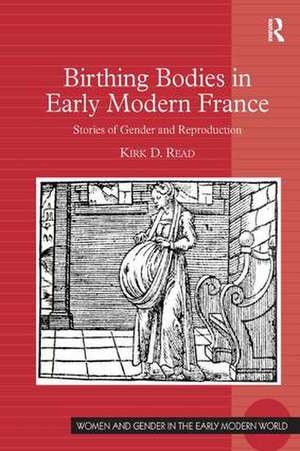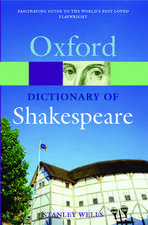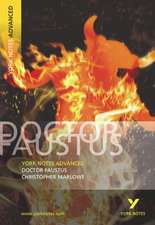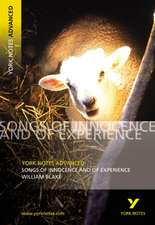Birthing Bodies in Early Modern France: Stories of Gender and Reproduction
Autor Kirk D. Readen Limba Engleză Hardback – 28 mar 2011
| Toate formatele și edițiile | Preț | Express |
|---|---|---|
| Paperback (1) | 489.26 lei 6-8 săpt. | |
| Taylor & Francis – 15 noi 2016 | 489.26 lei 6-8 săpt. | |
| Hardback (1) | 1058.65 lei 6-8 săpt. | |
| Taylor & Francis – 28 mar 2011 | 1058.65 lei 6-8 săpt. |
Preț: 1058.65 lei
Preț vechi: 1291.04 lei
-18% Nou
Puncte Express: 1588
Preț estimativ în valută:
202.59€ • 210.31$ • 168.93£
202.59€ • 210.31$ • 168.93£
Carte tipărită la comandă
Livrare economică 22 martie-05 aprilie
Preluare comenzi: 021 569.72.76
Specificații
ISBN-13: 9780754666325
ISBN-10: 0754666328
Pagini: 220
Dimensiuni: 156 x 234 x 14 mm
Greutate: 0.57 kg
Ediția:1
Editura: Taylor & Francis
Colecția Routledge
Locul publicării:Oxford, United Kingdom
ISBN-10: 0754666328
Pagini: 220
Dimensiuni: 156 x 234 x 14 mm
Greutate: 0.57 kg
Ediția:1
Editura: Taylor & Francis
Colecția Routledge
Locul publicării:Oxford, United Kingdom
Notă biografică
Kirk D. Read is an Associate Professor of French in the Department of Romance Languages and Literatures at Bates College, USA.
Recenzii
A Yankee Book Peddler UK Core Title for 2011 'This study, which explores a range of birthing bodies, female and male, and analyses striking associations of texts, will be of interest to all those - not just sixteenth- and seventeenth-century scholars - who work on the complexities of sex boundaries and non-normative gender identities.' Wendy Perkins, University of Birmingham, UK 'The richness of the encounters which Read constructs means that his book will appeal not only to those working on early modern France, but to scholars with an interest in historical and contemporary notions of gender and its connections with creativity.' British Journal for the History of Science 'Birthing Bodies is an eclectic, stimulating analysis that unpicks a plethora of associations made with the idea of childhood in early modern France... Read often raises questions in the manner of an enthusiastic class teacher, and some material will certainly be accessible to undergraduate students. Researchers, meanwhile, will find themselves refreshingly challenged to recognize and reconsider the labile properties of the early modern pregnant body and its adjuncts.' Renaissance Quarterly 'Read is clearly knowledgeable, widely read, and politically engaged in his work... a rich collection of materials and ideas to consider.' Bulletin of the History of Medicine 'This study ranges widely over a surprising number of texts of the period and includes extensive references to current gender theory. There are fourteen useful illustrations.' French Studies 'Kirk Read’s fine study contributes to the growing body of work that synthesizes earlier feminist readings of history and letters with more nuanced perspectives on gender and sexuality... Birthing Bodies has been extraordinarily engaging, entertaining, and persuasive.' Sixteenth Century Journal 'Birthing Bodies contributes to both historical and literary studies, pointing out and challenging the binaries of good and bad traditionally ascribed t
Cuprins
Introduction Of Birthing Bodies in Early Modern France; Chapter 1 Spying at the Lying-In: Les Caquets de l’accouchée as Birthing Event; Chapter 2 Staging the Competent Midwife: The Royal Birth Stories of François Rabelais and Louise Boursier; Chapter 3 Touching and Telling: Gendered Variations on a Gynecological Theme; Chapter 4 Assimilation with a Vengeance: Maternity without Women in Male French Renaissance Lyric; Chapter 5 Unstable Bodies: Birthing Monstrosities in Early Modern France; Chapter 6 Strange Fellows in Bed: Exotic Men’s Postpartum Blues; Chapter 7 Postpartum;
Descriere
The pregnant, birthing, and nurturing body is a recurring topos in early modern French literature. Such bodies, often metaphors for issues and anxieties obtaining to the gendered control of social and political institutions, acquired much of their descriptive power from contemporaneous medical and scientific discourse. Read brings together literary and medical texts that represent a range of views, from lyric poets, satirists and polemicists, to midwives and surgeons, all of whom explore the popular sixteenth- and early seventeenth-century narratives of birth in France.















